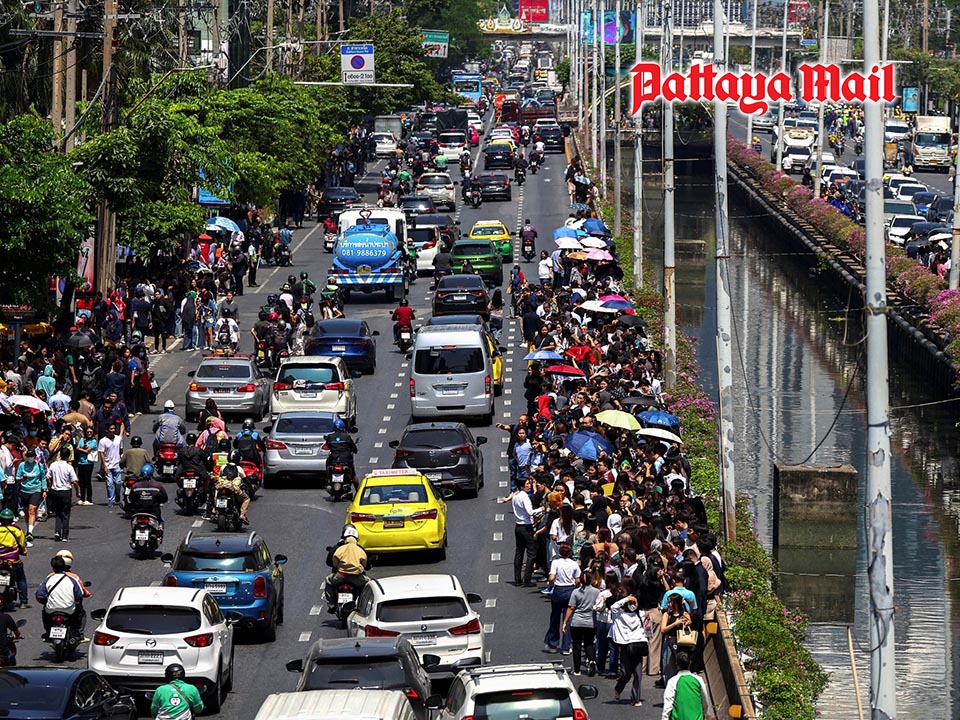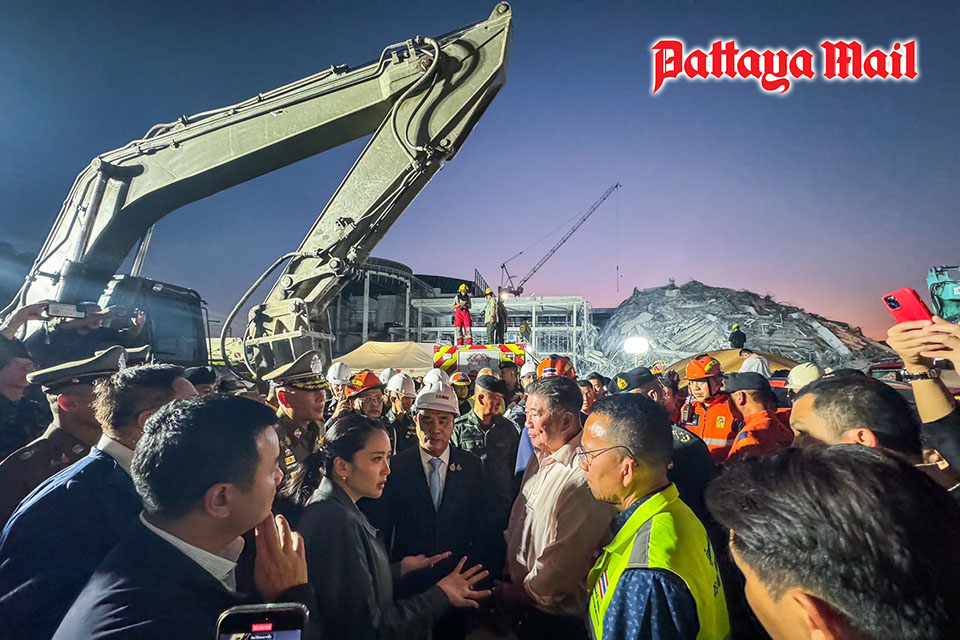
PATTAYA, Thailand – A building collapse in Bangkok can have far-reaching consequences beyond just the immediate loss of life and property. It affects confidence in multiple aspects of Thailand’s governance, safety standards, and economy.
A major building collapse raises questions about the effectiveness of government oversight, construction regulations, and enforcement of safety standards. If corruption or negligence is suspected in the approval process, it can erode public trust in local and national authorities, making people question how well Thailand’s administration ensures public safety.
Bangkok is a rapidly growing metropolis with high-density construction. A structural failure signals potential weaknesses in urban planning, zoning laws, and infrastructure management. If one building collapses, citizens and investors alike may worry about the safety of other structures, leading to heightened scrutiny and calls for better inspections.
A sudden collapse—especially if there were prior warning signs—can indicate failures in disaster prevention systems. If authorities failed to detect structural weaknesses or ignored complaints from residents or workers, it raises concerns about Thailand’s ability to prevent similar tragedies, whether they involve buildings, floods, or other disasters.
Thailand is a global tourism hub, and safety is a key concern for visitors. A building collapse, particularly in a high-profile area, can create negative international headlines. Tourists may worry about the safety of hotels, shopping malls, or public spaces, leading to hesitancy in booking trips. If the disaster is linked to lax regulations, it can damage Thailand’s reputation as a safe and well-managed destination.

Foreign investors rely on strong regulations, reliable infrastructure, and efficient governance. A building collapse suggests risks in Thailand’s business environment, particularly in the real estate and construction sectors. If investors perceive systemic problems—such as weak enforcement of safety standards or corrupt approval processes—they may reconsider putting money into Thai projects, affecting economic growth.
A high-profile disaster can shake public morale, making people feel unsafe in their own homes, workplaces, or public buildings. If accountability is not swiftly enforced, it can lead to public outcry, protests, or loss of faith in officials responsible for safety regulations. The handling of the crisis, including emergency response and victim support, plays a crucial role in shaping public perception.
While Thailand has a strong economy and tourism industry, a building collapse can be a major setback, damaging confidence across multiple sectors. The government’s response—whether through transparent investigations, stricter regulations, or improved disaster preparedness—will determine how quickly trust can be restored.











